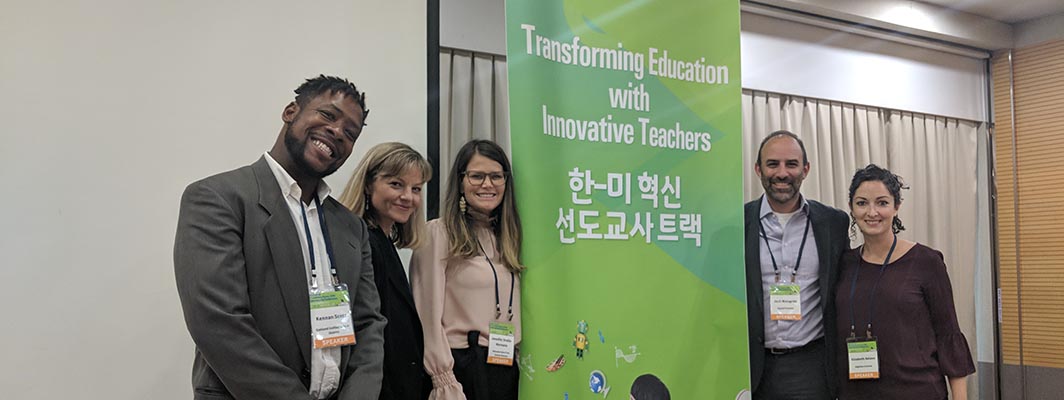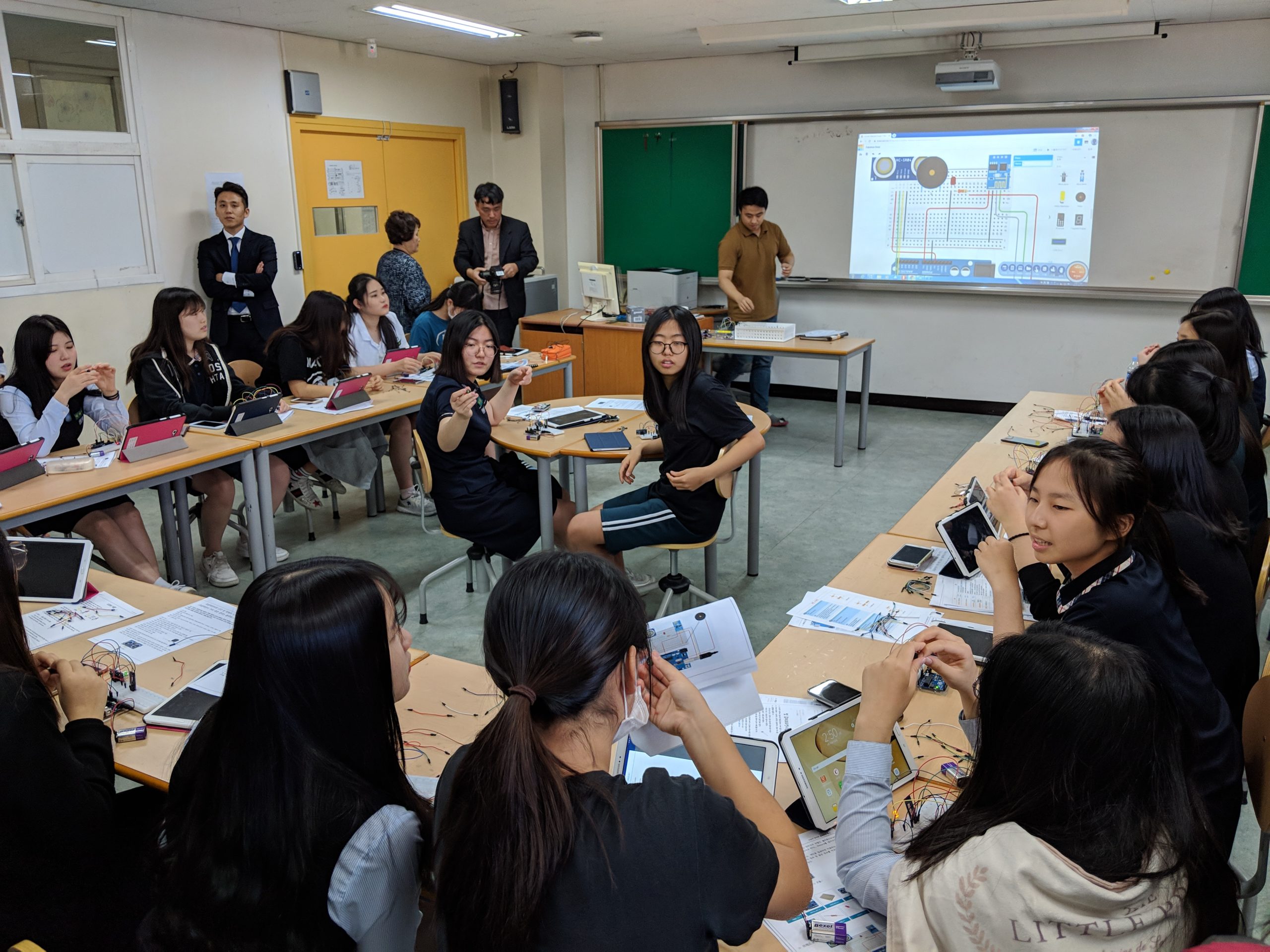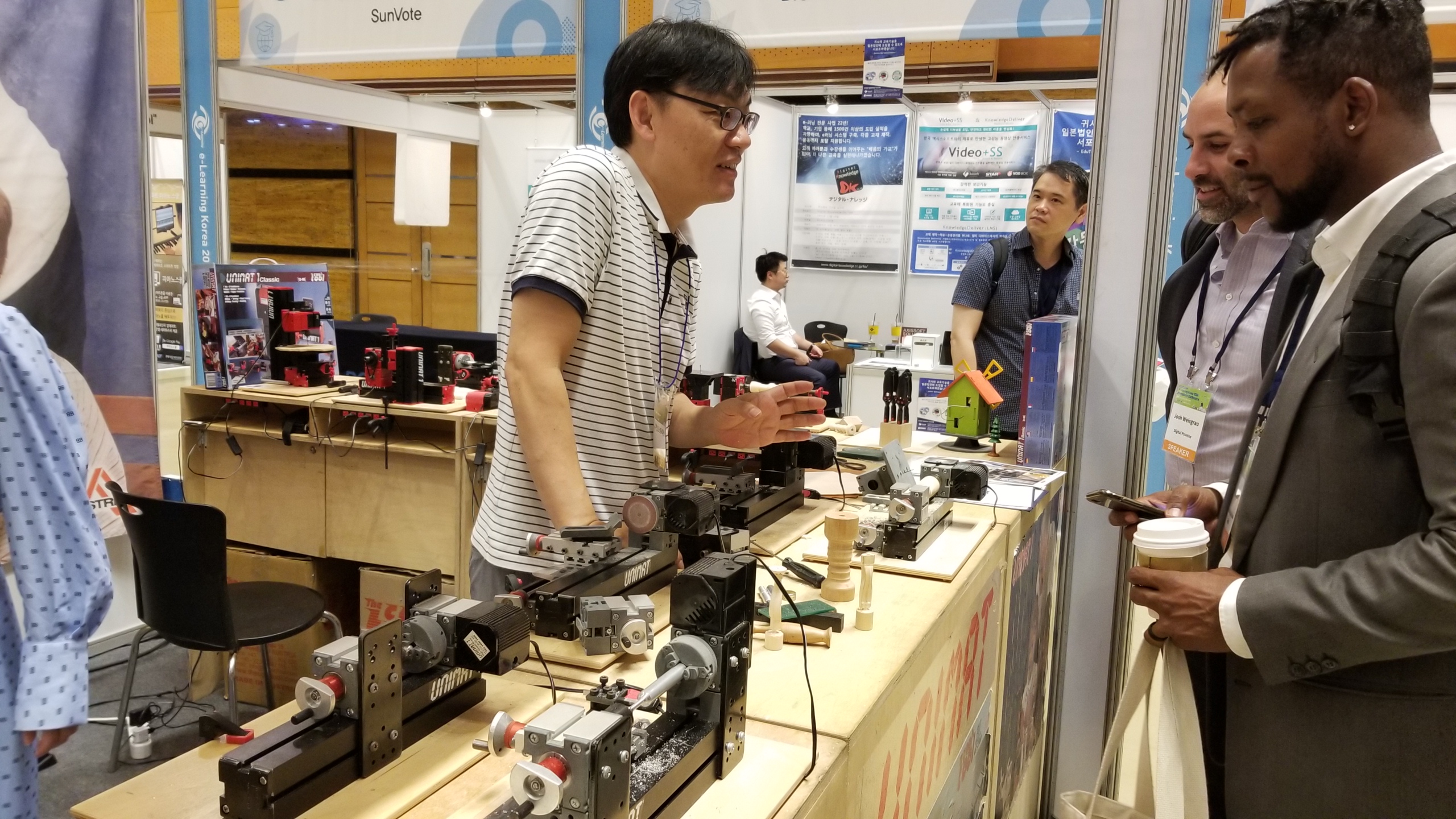
What happens when educators go beyond school walls to gain a global perspective on teaching and learning? Four teachers from across the United States were invited to join Digital Promise at the e-Learning 2018 Korea International Conference in Seoul, South Korea. The conference brought together educators, students, researchers, and policymakers to explore challenges and opportunities related to preparing the next generation for a future filled with technological innovation, referred to as the Fourth Industrial Revolution.
The four teachers who traveled to Korea—Jennifer Dralle-Moreano from Mineola Public Schools in New York, Cindy Duncan from Sitka Public Schools in Alaska, Elizabeth Nelson from Highline Public Schools in Washington State, and Kennan Scott from Oakland Unified School District in California—shared their reflections from the experience.
Educating for the Fourth Industrial Revolution
The Fourth Industrial Revolution is the breakthrough of new technologies, such as artificial intelligence, automation, and robotics, that will converge the digital, physical, and biological worlds across all disciplines and industries. This presents a new mandate for educators to equip students with the skills and competencies needed to thrive in an increasingly interconnected society.
“I was really happy to hear that there is an emergent push for problem solving, computational thinking, creativity, and collaboration in the Fourth Industrial Revolution,” Nelson, a career and technical education teacher, said. “Everyone was hopeful and wanted to know more about how we create the environment for our students to be successful, how we can be transparent with parents, and how we can generate highly-capable tech-literate students.”
“It was a great reminder why maker learning is so important to our students,” Duncan, a second grade teacher, said. “Overall, the thing that stood out was that preparing students for the Fourth Industrial Revolution is a global endeavor and we don’t have to do it alone; we can all learn so much from educators around the world.”

A visit to an introductory computer science class at a school in Seoul
Learning from Educators Around the World
The conference provided an opportunity for the U.S.-based teachers to share with and learn from their South Korean counterparts. For instance, according to Nelson, one teacher showed how she uses OneNote and Skype to collaborate with students and teachers across the globe to teach her students English. “I have never seen OneNote used like this and thought it is a great way for students to create a portfolio of their work,” she said.
The teachers were also exposed to new ideas and innovations through keynote speakers and fellow attendees. For example, Paul Kim at Stanford University presented SMILE-pi, a program engaging students in critical reasoning and problem-solving while enabling them to generate, share, and evaluate multimedia-rich inquiries. They were also exposed to AI technologies designed to improve literacy and language learning for different age groups. Through a school visit and tour of the Samsung Innovation Center, teachers were able to see innovative tools and learning practices in action while networking with fellow educators who had traveled from as far as Costa Rica and Uganda.

Q&A with teachers from South Korea and the United States
Taking Global Connections Home
The opportunity to learn and share with an international community of educators captivated the hearts and minds of the teachers. “I soon realized that when it comes to education, we are more alike than we are different,” Duncan said.
“I felt so connected, even though our classrooms are miles upon miles away,” said Dralle-Moreano, a teacher-librarian. “We all want to impact students as powerfully as we can, no matter where our classrooms are located.”
“Pedagogies built around hands-on learning, using technology to build empathy and engagement, brought us together. […] I believe the passion for teaching will keep us communicating,” Scott, a Project Lead the Way engineering teacher, said. “The tools that we offer to our students to communicate and learn from their global peers will be the same tools we use to stay in touch and share challenges and stories.”

Kennan Scott and Josh Weisgrau (right) learn about cutting-edge tools for making at the EduTech Fair. Photo Credit: Elizabeth Nelson
“Everything about this conference reaffirmed what I already know,” Dralle-Moreano said. “I am grateful to work in a district that is doing innovative and ahead-of-the-curve things, while preparing our students for jobs that don’t even yet exist and also supporting my professional growth. That’s a win-win in my book.”